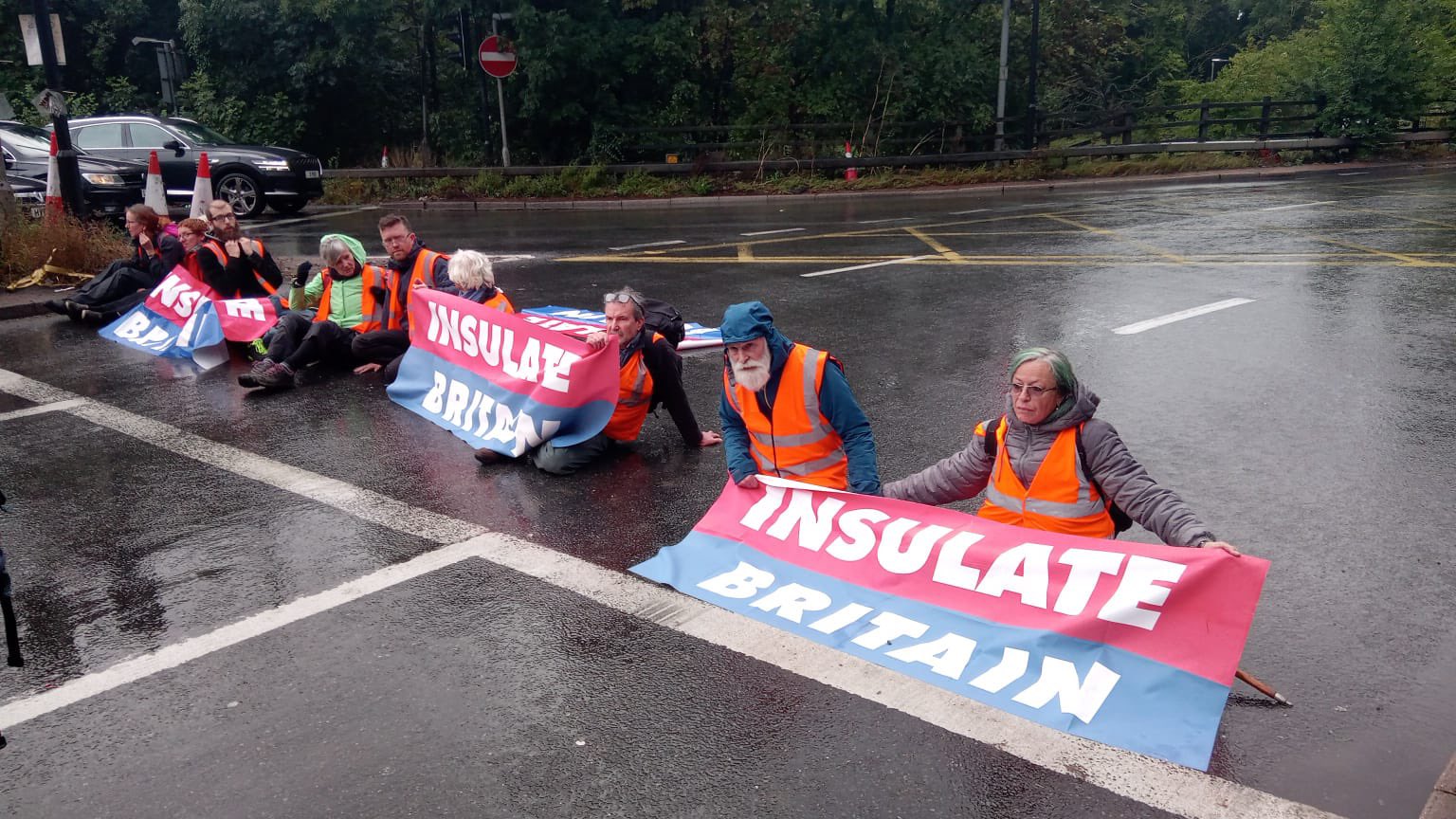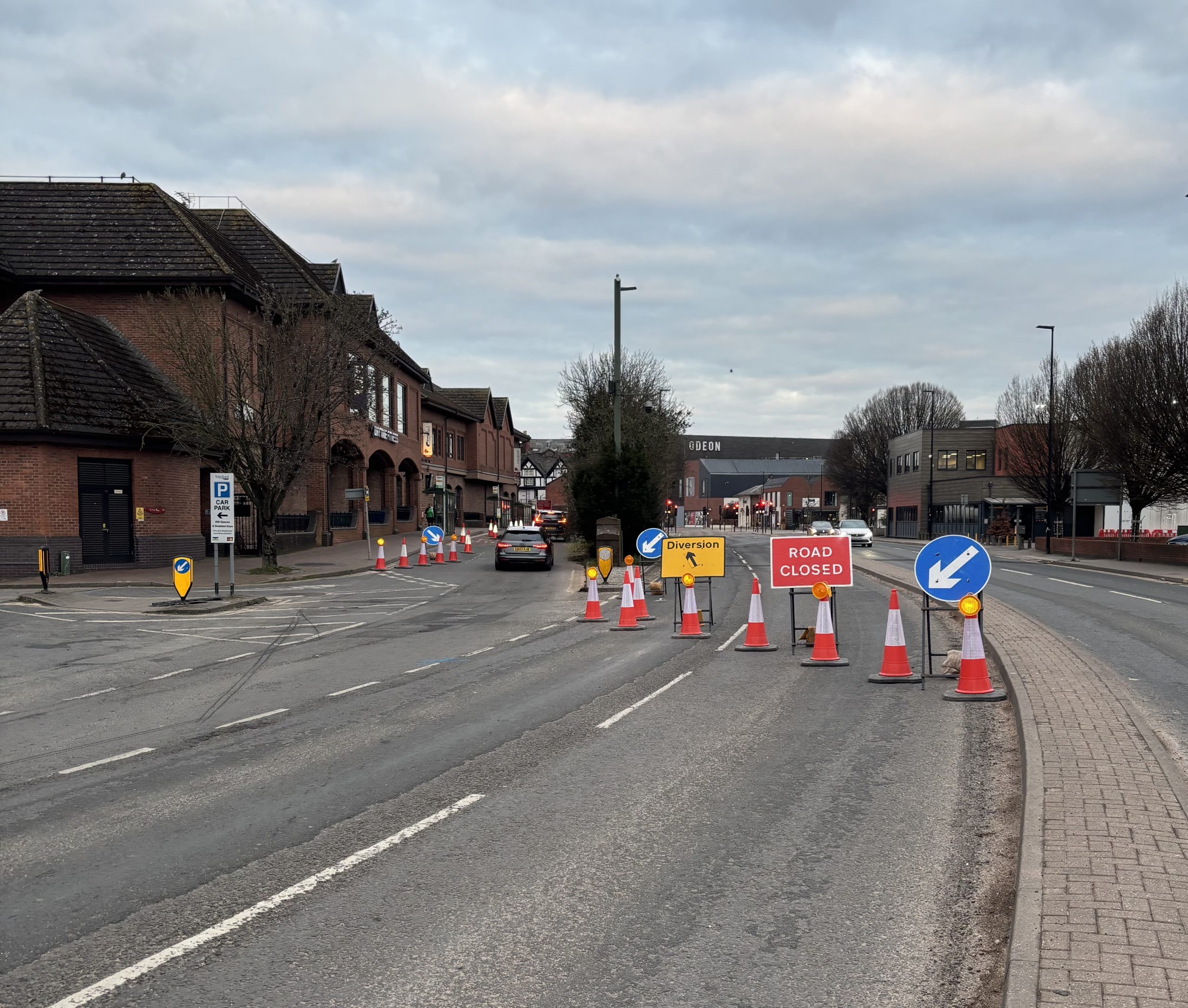Press release from Insulate Britain:
Approximately 30 people from Insulate Britain have blocked roundabouts on the motorway network today. The group has blocked the M4 at Junction 3 and the M1 at Junction 1. They are demanding that Boris gets on with the job of insulating Britain’s homes starting with the homes of the poorest people in the country.
This is the tenth time that Insulate Britain has caused disruption on motorways and A roads over the past three weeks. Eight people were released from custody on Thursday after blocking the M25 at Junction 30 and they have returned, with others arrested earlier in the week.
Insulate Britain says actions will continue until the government makes a meaningful statement indicating that they will insulate all of Britain’s 29 million leaky homes by 2030, which are among the oldest and most energy inefficient in Europe. [1]
Tim Gough, an architect and academic, speaking to Radio 5 Live this week said:
“Insulate Britain has a straightforward aim: that the government insulate all UK houses by 2030. This is an infrastructure investment project requiring Churchillian levels of political guts. The cost could be somewhere between £500bn and £1trillion pounds over eight years, or £100bn per annum which is around 5% of GDP per year.
“The payback is a monumentally positive transformation of the environmental, economic and health situation of the entire working population of the UK. It will create between 1 and 2 million new highly skilled construction jobs, reduce heating bills by 90% for all households, end fuel poverty and solve the housing crisis in one stroke.”
A spokesperson for Insulate Britain said:
“It’s incomprehensible that the government is continuing to delay action on home insulation when we urgently need to cut our carbon emissions, eliminate fuel poverty and help hard working families with their rising energy bills. Added to which industry is crying out for the government to show some leadership and get behind a national retrofitting strategy. Come on Boris: get on with the job!”
In August this year, thirteen major companies and organisations including British Gas, Eon, Nationwide and The Federation of Master Builders called on the government to “urgently” develop a National Retrofitting Strategy to deal with the UK’s inefficient, leaky homes. Claire Tracey, Chief Strategy and Sustainability Officer at Nationwide Building Society, called this “one of the most pressing issues of our time.” [2]
According to Green Finance Institute and Bankers for Net Zero, achieving the pace and scale of action required in this area is not an incremental challenge, the UK’s retrofitting industry needs to grow by ten times its current size if the UK is to decarbonise its housing stock in line with the UK’s net-zero emissions target. [3]
According to Bankers for Net Zero, with the right support, the retrofit industry can achieve an exponential take-off during the 2020s and 2030s – delivering tangible economic, social and environmental benefits for the whole of the UK. The key is to move from one-off measures to a cohesive set of aligned policies based on a deep retrofit approach that together can drive up supply and demand, drive down costs and mobilise private finance. [4]



